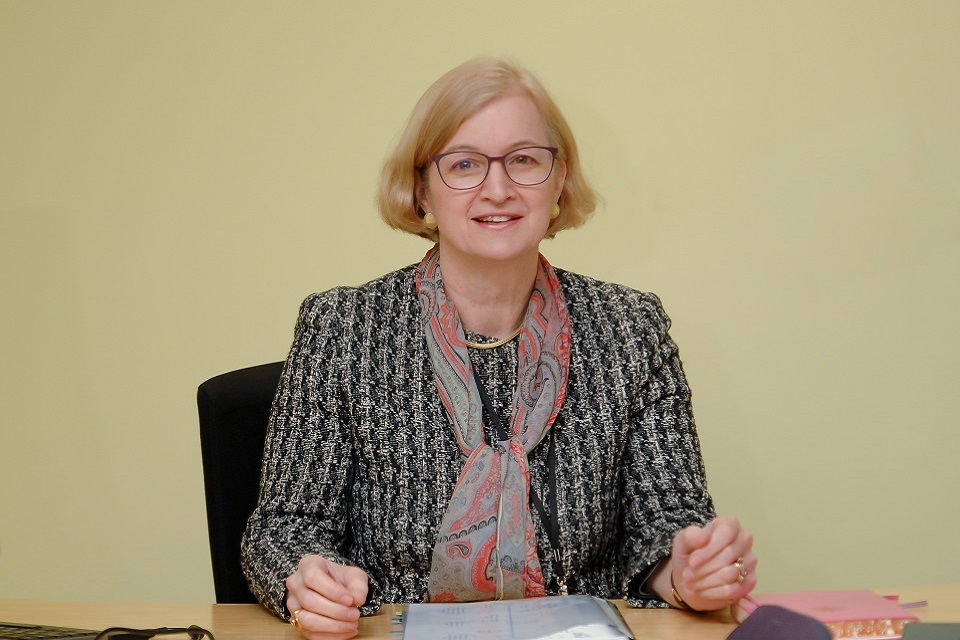The head of Ofsted has described her "regret" that the Church of England has resisted changes in the law to allow out-of-hours religious schools to be inspected.
Addressing the Church of England Foundation for Education Leadership, a partnership of schools, dioceses, universities and others dedicated to supporting the development of leaders in education, Amanda Spielman said one of Ofsted's greatest areas of concern is what is happening "under the radar" in so-called out-of-school provision.
She said: "Out-of-school provision is a mainstay of the work of the church; indeed it is hard to think of a more British institution than a Sunday school. Similar positive activity groups exist in other faiths, providing extra-curricular activities, language training and spiritual instruction. I have no doubt they provide an enriching experience to the young people who attend them.
"But some other out-of-school settings operate less benignly. These institutions, some of which operate as illegal schools, use the opportunity to – in the words of the former Prime Minister – put ‘poison in the minds, hatred in hearts’ of young people. They need to be tackled.
"That is why I am afraid to say it is a matter of regret that the Church has resisted changes in the law to allow Ofsted to inspect these settings."
David Cameron's government tried to legislate for Jewish, Muslim and Christian religious schools – such as Sunday schools – to register for inspection. However, the plans were dropped after protests from some religious leaders.
The Catholic bishops of England and Wales did not however oppose the plans.
At the time, Paul Barber, director of the Catholic Education Service commented: “We share the Prime Minister’s view that the teaching of intolerance has no place in Britain today. As one of the major providers of education in the UK, we expect to play a pivotal role in the development of this policy. As such, we don’t see this posing a threat to any extra-curricular Church activity.”
Spielman said yesterday: "This is not about infringing religious freedom: no one is proposing a troop of inspectors turning up at Sunday schools. Instead, it is about ensuring that the small minority of settings that promote extremism are not able to evade scrutiny.
"If we are to protect many of the tenets that the Church holds dear, we need the power to tackle those trying to use education to undermine them."
She also spoke about how, in faith schools in particular, the focus on the spiritual, the moral dimension of young people’s education tends to be exemplary.
However, school leaders often feel that in the pursuit of excellent outcomes they have to betray the very ethos they are attempting to impart on young people, she said.
Exam performance and league tables should be a reflection of what children have learned, and the curriculum should be designed to give children the best pathway to the future, not to make the school look good, she said.
She quoted the Bible to the Church of England education leaders: "Good leaders make sure the focus of their schools is, in the words of Psalm 119, to ‘teach knowledge and good judgment’. To me, that is real ethical leadership."
She spoke of the importance of giving children moral strength: "In an era of ‘fake news’ and tweeting presidents, we need young people to develop the moral fibre they need to flourish in a unstable world and – dare I say it – to correct some of the mistakes of the generation that has come before them.
"The starting point for that is that school leaders, the people who children look to day to day, must embody the values we want young people to inherit. Young people need to see that real leadership isn’t about bullying your staff to game results or pursuing external validation at any cost. Instead, leadership first and foremost is about acting with integrity."
While many faith schools are exemplars in promoting tolerance of faiths, lifestyles and cultures, tolerance and respect does not mean that all belief should be above criticism.
"Ofsted inspectors are increasingly brought into contact with those who want to actively pervert the purpose of education. Under the pretext of religious belief, they use education institutions, legal and illegal, to narrow young people’s horizons, to isolate and segregate, and in the worst cases to indoctrinate impressionable minds with extremist ideology.
"Freedom of belief in the private sphere is paramount, but in our schools it is our responsibility to tackle those who actively undermine fundamental British values or equalities law. That doesn’t just mean Ofsted, but everyone involved in education. Rather than adopting a passive liberalism that says ‘anything goes’ for fear of causing offence, schools leaders should be promoting a muscular liberalism."
She referred to books found by Ofsted inspectors displayed in schools encouraging husbands to beat their wives.
"There are segments of particular faiths who are determined to use our schools to promote beliefs and practices that are an anathema to British values. If we are to tackle this practice effectively, we will require changes to legislation to give us better powers."



 Loading ...
Loading ...